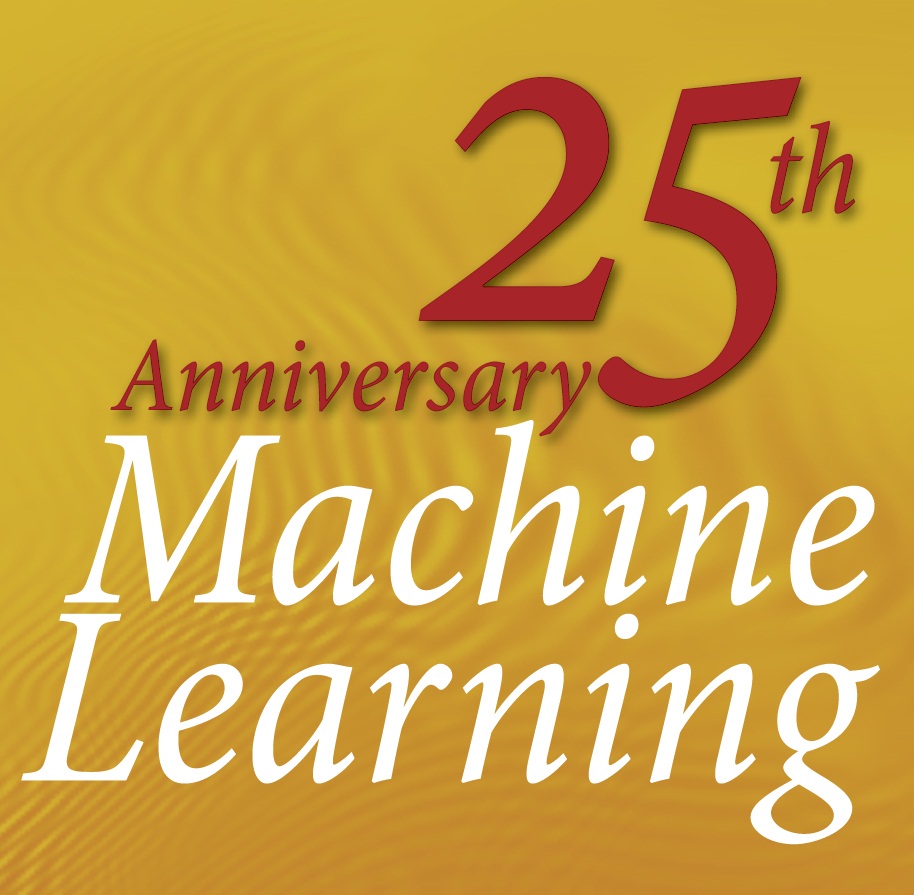List of accepted short
papers
1 Stephen Muggleton, Dianhuan Lin and Alireza Tamaddoni-Nezhad
MC-TopLog: Complete Multi-clause Learning guided by a Top Theory
2 Masakazu Ishihata, Yoshitaka Kameya and Taisuke Sato
Variatinal Bayes inference for logic-based probabilistic models on BDDs
3 Ekaterina Komendantskaya
Machine-Learning Coalgebraic Proofs
4 Santiago Ontañón and Pedro Meseguer
Efficient Operations in Feature Terms using Constraint Programming
5 Joris Gillis and Jan Van Den Bussche
The expressive power of first-order logical decision trees
6 James Cussens
Online Bayesian inference for the parameters of PRISM programs
7 Stephen Muggleton and Changze Xu
Can ILP Learn Complete and Correct Game Strategies ?
8 Waleed Alsanie and James Cussens
Learning a generative failure-free PRISM clause
9 Hassan Khosravi, Oliver Schulte and Jianfeng Hu
Learning Compact Markov Logic Networks With Decision Trees
10 Anže Vavpetič and Nada Lavrac
Using Ontologies in Semantic Data Mining with g-SEGS and Aleph
11 Oliver Schulte, Hassan Khosravi and Tong Man
Learning Directed Relational Models With Recursive Dependencies
13 Jan Ramon, Samrat Roy and Jonny Daenen
Efficient homomorphism-free enumeration of conjunctive queries
14 Carlos Ferreira, João Gama and Vítor Costa
Predictive Sequence Miner in ILP Learning
15 Orlando Muñoz Texzocotetla and René Mac Kinney Romero
Multivalue Learning in ILP
16 Frederic Koriche
Relational Networks of Conditional Preferences
17 Jorge Gonzalez, Javier Romero, Alberto Illobre, Luis Fraga and Ramon Otero
Experiments on Psychology Using the ILP+ASP Method
18 Krishna Dubba, Paulo Santos, Anthony Cohn and David Hogg
Probabilistic relational learning of event models from video
19 Katsumi Inoue
DNF Hypotheses in Bottom-directed ILP
20 Domenico Corapi, Alessandra Russo and Emil Lupu
Inductive Logic Programming in Answer Set Programming
21 Francesca Alessandra Lisi and Umberto Straccia
Can ILP Deal with Incomplete and Vague Structured Knowledge?
22 Jose Santos and Manuel Ribeiro
Improving search engine Query Expansion techniques with ILP
23 Radomir Cernoch and Filip Zelezny
Subgroup Discovery through Bump Hunting on Relational Histograms
24 Mahito Sugiyama, Kentaro Imajo, Keisuke Otaki and Akihiro Yamamoto
Discovering Ligands for TRP Ion Channels Using Formal Concept Analysis
25 Yuta Yoshimura, Takayoshi Shoudai, Yusuke Suzuki, Tomoyuki Uchida and Tetsuhiro Miyahara
Polynomial Time Inductive Inference of Cograph Pattern Languages from Positive Data
26 Beau Piccart, Hendrik Blockeel, Lieven Eeckhout and Andy Georges
Predictive Learning in Two-way Datasets
27 Bogdan Moldovan, Martijn Van Otterlo, Plinio Moreno Lopez, Jose Santos-Victor and Luc De Raedt
Statistical Relational Learning of Object Affordances for Robotic Manipulation
28 Jianmin Ji and Xiaoping Chen
Induction in Nonmonotonic Causal Theories for a Domestic Service Robot
29 Mathias Verbeke, Paolo Frasconi, Vincent Van Asch, Roser Morante, Walter Daelemans and Luc De Raedt
Kernel-based Logical and Relational Learning with kLog for Hedge Cue Detection
32 Nicola Di Mauro, Teresa M.A. Basile, Stefano Ferilli and Floriana Esposito
mLynx: Relational Mutual Information
34 Davide Nitti, Guy Van Den Broeck and Luc De Raedt
Probabilistic Logic in Dynamic Domains: Particle Filter with Distributional Clauses
35 Alireza Tamaddoni-Nezhad, David Bohan, Alan Raybould and Stephen Muggleton
Machine Learning a Probabilistic Network of Ecological Interactions
36 Cristiano Pitangui and Gerson Zaverucha
REDA-ILP: Learning Theories using EDA and Reduced Bottom Clauses
37 Moez Essaidi, Aomar Osmani and Céline Rouveirol
Learning Dependent-Concepts in ILP: Application to Model-Driven Data Warehouse
38 Man Zhu and Zhiqiang Gao
Learning from Linked Data by Markov Logic
39 Hiroyuki Nishiyama and Fumio Mizoguchi
ILP for Cosmetic Product Selection - Use of Smart Phone for Real-World Machine Learning Application
40 Filip Zelezny
Satisfiability machines
41 Thashmee Karunaratne and Henrik Boström
Use of frequent itemset mining for learning from graphs – what is gained and what is lost?
42 Dalal Alrajeh, Alessandra Russo, Sebastian Uchitel and Jeff Kramer
Integrating Model Checking and Inductive Logic Programming
43 Hiroaki Watanabe and Stephen Muggleton
Projection-based PILP: computational learning theory with empirical results
44 Takashi Yamada and Takayoshi Shoudai
Graph Contraction Pattern Matching for Graphs of Bounded Treewidth
45 Fabrizio Riguzzi and Terrance Swift
The PITA System for Logical-Probabilistic Inference
46 Niels Pahlavi and Stephen Muggleton
Towards Efficient Higher-order Logic Learning in a First-order Datalog Framework
47 Ashwin Srinivasan and Michael Bain
Learning Petri Net Models of Biological Systems using ILP
48 Parisa Kordjamshidi, Paolo Frasconi, Martijn Van Otterlo, Marie-Francine Moens and Luc De Raedt
Spatial Relation Extraction using Relational Learning
49 Lukasz Jozefowski, Agnieszka Lawrynowicz, Joanna Jozefowska, Jędrzej Potoniec and Tomasz Lukaszewski
Kernels for EL++ Description Logic Concepts
50 Brahim Douar and Michel Liquiere
Graph-based relational learning with a polynomial time projection algorithm
52 Elena Bellodi and Fabrizio Riguzzi
Learning the Structure of Probabilistic Logic Programs
53 Andreas K. Fidjeland, Wayne Luk and Stephen H. Muggleton
Customisable Multi-Processor Acceleration of Inductive Logic Programming
54 Joris Renkens, Guy Van Den Broeck and Siegfried Nijssen
k-Optimal: A Novel Approximative Inference Algorithm for ProbLog
55 Pedro Torres and Marian Ursu
Induction in First-Order Logic with Temporal Metric Operators
56 Christophe Rodrigues, Pierre Gérard, Celine Rouveirol and Henry Soldano
Active learning of relational action models
57 Nuno A. Fonseca, Rui Camacho and Vitor Santos Costa
Conceptual Clustering of Multi-Relational Data
58 Andreas Markitanis, Domenico Corapi, Alessandra Russo and Emil Lupu
Learning user behaviours in real mobile domains
59 Krishna Dubba, Mehul Bhatt, Frank Dylla, Anthony Cohn and David Hogg
Interleaved Inductive-Abductive Reasoning for Learning Event-Based Activity Models
60 Jan Van Haaren and Guy Van Den Broeck
Relational Learning for Football-Related Predictions
61 Ramon Otero, Javier Romero, Jorge Gonzalez and Dominguez Illobre
Inducing a system that intentionally hides
62 Robert J. Henderson and Stephen H. Muggleton
Automatic Invention of Functional Abstractions
63 Barthelemy Dworkin, Andrei Doncescu and Katsumi Inoue
Model of Double Strand Break of DNA in Logic-Based Hypothesis Finding
64 Yoshitaka Yamamoto, Katsumi Inoue and Koji Iwanuma
Comparison of Upward and Downward Generalization in CF-induction
65 Muralikrishna Sridhar, Anthony G Cohn and David C Hogg
Relational Learning with Qualitative Spatio-Temporal Graphs for Understanding Video Activities
66 Dianhuan Lin, Jianzhong Chen, Hiroaki Watanabe, Stephen Muggleton, Pooja Jain, Michael Sternberg, Charles Baxter, Richard Currie, Stuart Dunbar, Mark Earll and Domingo Salazar
Does Multi-clause Learning Help in Real-world Applications?
67 Yoshihisa Shiina and Hayato Ohwada
Using machine-generated soft constraints for roster problems
69 Matthias Nickles
Integrating Relational Reinforcement Learning with Reasoning about Actions and Change



